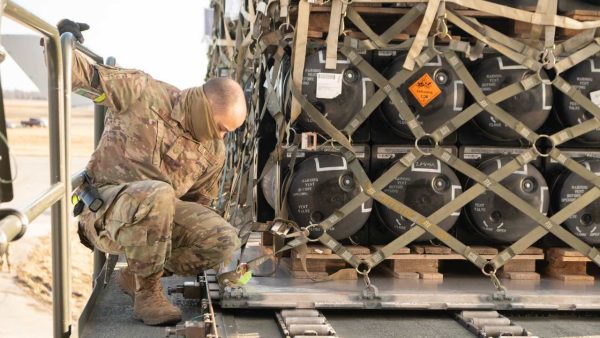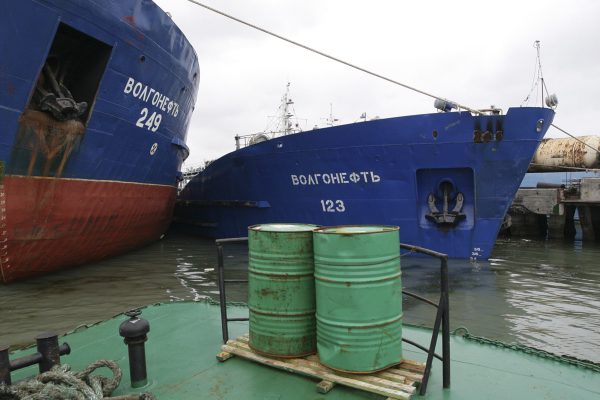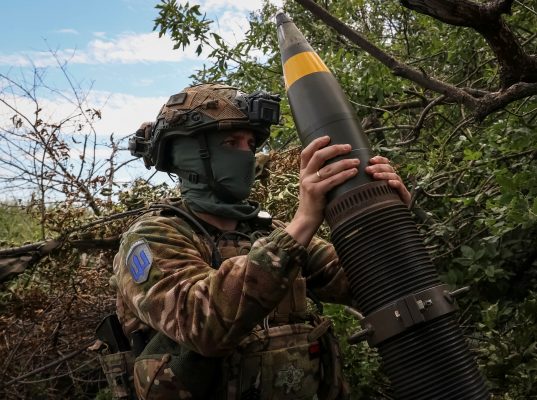Here’s why I have supported Ukraine since the start of the war in 2014. The reason is the history of my country, Romania, and the understanding that without collective defense, the whole Central and East European region might once again find itself in serious trouble.
NATO has changed Romania’s geopolitical existence for the better and promises my country a brighter future against the predators — primarily Russia — that have made national life so precarious.
In 1940, Romania was bullied into giving away nearly a third of its territory, for which at least 250,000 soldiers had died in World War I. We had to give the regions of Bessarabia and Northern Bukovina to the USSR, and Northern Transylvania to Hungary. Our soldiers retreated in disorder, humiliated, and without firing a shot.
They had little choice. During the interwar years, our corrupt governments completely neglected national defense, meaning that in 1940 the army was in no condition to fight. The country was poor but had been prospering quite well. By the late 1930s, we were converging on the same standard of living as the more developed countries of Central and Western Europe. Our strongest economic sectors were agriculture and the oil industry, centered around the town of Ploiesti. The capital, Bucharest, was a cosmopolitan city with a flourishing cultural life.
But there were severe underlying weaknesses, which were not entirely foreseeable. Romania had followed World War I by signing defensive agreements — the Little Entente — with Yugoslavia and Czechoslovakia, another agreement with Poland, and more broadly relied on France and the UK as heavier-duty allies. But by 1940, two of the smaller allies had fallen to the Nazis and the USSR. France, too, was knocked out of the war, and the UK was barely hanging on. Romania now presented easy pickings for its enemies.
Alone and humiliated by territorial grabs, Romania was unable to react, paralyzed with fear and full of hatred.
Things soon got worse. The Fascist Iron Guard of Ion Antonescu came to power. Rabidly anti-Semitic, they worked to persecute the country’s Jewish minority, a process that had begun with the previous government. Jews were an easy scapegoat for the national disaster. The regime spared no effort to spread propaganda about the supposed link between the Jewish community and Bolshevism. A number of bloody pogroms took place over the following months, the worst of which resulted in the murder of as many as 15,000 Jews and the plunder of their property in Iași.
Romania became an Axis ally, under the promise that this would result in the return of the territory annexed by the USSR. With Nazi Germany’s invasion of the Soviet Union, the true horror began for Romanian Jews, with many deported to Transnistria, together with the Roma population. A number of appalling massacres were perpetrated by Romanian and German troops, with the help of local auxiliaries, or Hiwi. By the end of the war 300,000 Jews and 13,000 Roma were dead, despite the efforts of King Michael and the Queen Mother Elena; the latter would later be named among the Righteous Among the Nations. Antonescu had meanwhile overplayed his hand, sending his troops far beyond the Dniester on behalf of the Germans. The Romanian army was almost annihilated at Stalingrad.
Romania was ruined. Its Jewish population, in particular, had been butchered and robbed, its pro-fascist army destroyed, its monarchy abolished, and its new master — the USSR — was fundamentally hostile. The following 40-plus years were a trial, ending only when the dictator Nicolae Ceaușescu and his wife were executed by the revolutionaries of 1989.
The lessons learned?
For Romania, there was no doubt at all. The country must have membership in the two biggest and most successful Western clubs, NATO and the European Union (EU), which we joined in 2004 and 2007.
Like other nations in our region, those whose sovereignty had been trampled on and who had been used as bargaining chips, who had been stunted and vassalized by imperial powers, we wanted to feel safe, and we feared a rejuvenation of Russian imperialism.
That’s precisely why Romania joined NATO, and that’s why Ukraine must be supported militarily to take back its sovereign territory. Forcing Ukraine to accept a peace requiring the surrender of land would only lead to humiliation, internal strife, and almost certainly an increase in political extremism while also emboldening Russia to pursue its imperial ambitions. (Not least in Moldova, packed full of Romanian speakers and Romanian nationals.)
Forcing Ukraine’s hand would be a historic error, and likewise, taking it into NATO would be an act of wisdom.
In this part of the world, we remember what can go wrong. We must do everything in our power to prevent a repeat.
Alexandru Nicolin is a Bucharest-based cybersecurity expert
Europe’s Edge is CEPA’s online journal covering critical topics on the foreign policy docket across Europe and North America. All opinions are those of the author and do not necessarily represent the position or views of the institutions they represent or the Center for European Policy Analysis.





